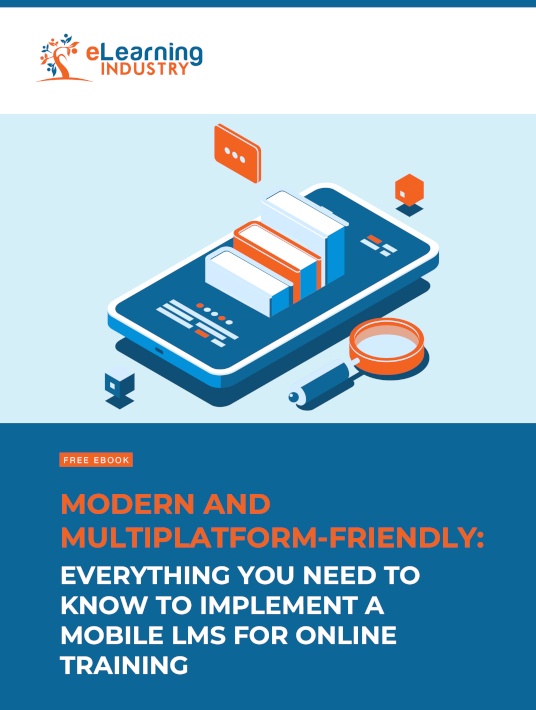Unexpected Perks Of Investing In A Mobile LMS Featuring A Mobile Learning App
Many modern online training systems have a mobile component. It’s becoming a standard feature, given that slightly over half the internet visitors access the web via mobile. So, it makes sense that your online training course would be available for tablets and smartphones. In a corporate set-up, this allows you to train external partners and off-site team members. It’s convenient for in-house team members too because they can train during their minimal pockets of free time. Why else should you buy an LMS with a mobile training app built in? Here are some of the main reasons:

1. Saved Time And Labor
LMS training usually offers greater flexibility than buying a pre-designed online training course. It gives you more scope in terms of content, layout, and branding. Some LMS solutions are available for free. However, Learning Management Systems often require specialists to manage them. These specialists may need to be high-level coders who are able to craft complex online training courses using 0s and 1s. Also, laymen don’t fully understand that building apps for desktop and making apps for mobile are two distinct disciplines. The skills are related, but you can’t swap one for the other, not without some re-orientation. Which means you may have to fire a computer programmer and a mobile app developer. Both techies are in high demand and require ample pay. So, if your LMS has a mobile app built into it, you can lower your technical staff requirements. This could literally save thousands of dollars, both in programming labor and billable man-hours.
2. Enhanced Performance
The benefits of JIT training are well known. It helps to facilitate the exact training you need and does it at your exact moment of need. JIT could be something unexpected, something you never thought to do training for. Like deciding who/how to pay when you’re dining with a client. It could be a practical skill informing someone on which side of the road to drive on during international trips. At times it’s something technical such as how to request extra funds when you are abroad. While we all agree on the advantages, we don’t think about the medium as much as we should. Obviously, the best way to access support tools is on mobile. Otherwise, you’d have to find a work station or cybercafé and log on. With mobile access, the person you’re dealing with doesn’t even have to know you’re ‘cheating’. They won’t know you’re taking a crash course in de-escalation. They’ll just think you’re checking your text messages. And if you’re clever, they won’t see you glance at the phone at all. Especially if it’s a quick infographic or an audio tutorial you can listen to via Bluetooth, hands-free or with a single earbud in.
3. Ideal For Younger Hires
New employees might be experienced senior staff lured in from competitors. They won’t need much job training, though they’ll have to learn how you do things at your firm. They may have to adjust to different software or internal systems. More often though, new hires are fresh graduates. That means younger millennials. Gen Z members are trickling into the workplace too. Mobile tools are intuitive to them, so you can serve them better by offering their orientation courses that way. It can also be helpful for the ever-widening pool of telecommuters, remote workers and gig-based employees. It saves you the expense of buying them tablets or laptops. This is even more crucial with off-site hires. You don’t want the hassle of worrying about damaged field equipment; with office computers, there’s more accountability and less opportunity for destruction. Worse, the nightmare of reclaiming office equipment after temporary contracts are done. With a mobile learning app, you can simply revoke their access.
4. Reduced Employee Turnover
Investing in a mobile LMS that features a mobile learning app also allows you to keep your top talent and avoid new hire training expenses. Your in-house staff is more likely to stay with the organization if they get the moment-of-need training they require. They do very well when they have access to support resources that are accessible on any device. The alternative is forcing them to ask a manager or wait until the next training session to bridge the gaps. A side benefit of this is being able to hone your in-house talent through mobile-friendly online training certification courses. You don’t have to worry about investing resources into cultivating their skills, only to have them find another job elsewhere.
5. Better Compliance
With a mobile learning app, employees have access to compliance resources at a moment’s notice. For example, when they’re in the middle of a task and don’t know how to proceed without breaking company policies or regulations. They can simply log in to the platform via their smartphone and watch demo videos to see how it’s done. They also have the opportunity to identify areas for improvement on their own and remedy the problem autonomously. For instance, they may use self-assessments or simulations to detect knowledge gaps and improve performance, as well as avoid penalties).
Your corporate LMS with a built-in mobile learning app can enable you to design online training courses from scratch. However, ensuring these courses work on mobile is a separate skill-set. When mobile training apps are included with your LMS, it makes your course development process quicker, cheaper and easier. Mobile apps are preferred by younger employees, both for business and pleasure. Apps feel native to them. They increase efficiency and improve performance, both during training and in actual work-related tasks. Plus, apps are easier to swap between workers.
Why should you buy an LMS with a built-in mobile training app? What’s the specific benefit of investing in an LMS that has its own mobile app included? Download our eBook Modern And Multiplatform-Friendly: Everything You Need To Know To Implement A Mobile LMS For Online Training to learn how a mobile-friendly Learning Management System can help you improve employee engagement and retain your top talent. It also features tips to choose the ideal mobile learning solutions provider for your compliance program and highlights the many advantages of developing a native mobile learning app versus a mobile-optimized platform. You’ll even find a demo checklist so you know what to look for during your LMS test drive.









